Underwater Welding Salary in Canada (2024 Update)
Last Updated on
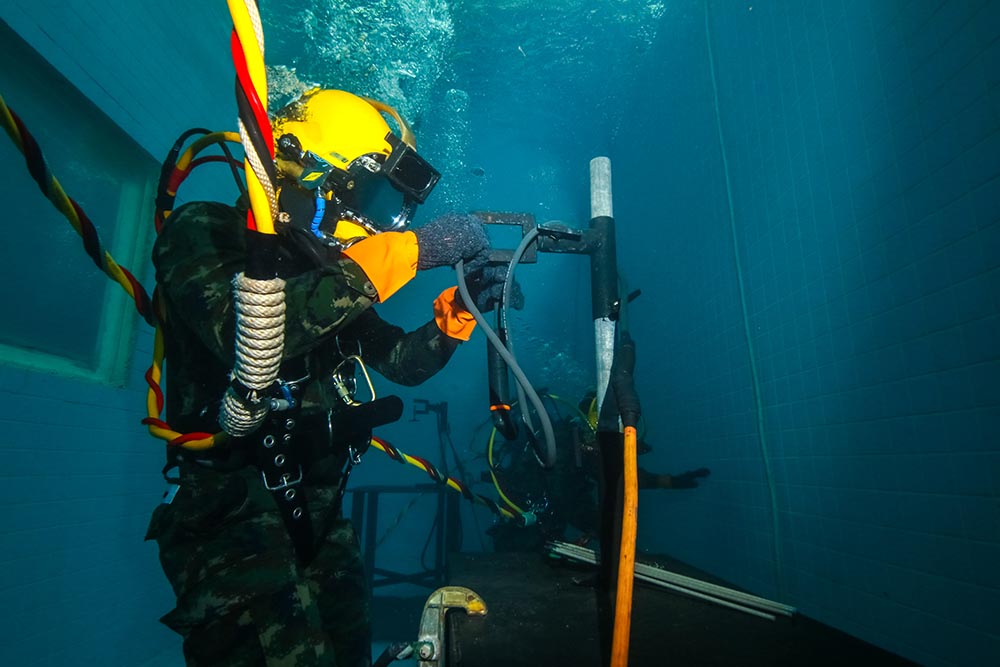
Underwater welders are in demand in Canada these days. They play a crucial role in the construction industry. Also, they maintain offshore oil and gas production platforms.
However, underwater welding is one of the most dangerous and intensive jobs performed underwater. So, if you are thinking about getting into underwater welding, it’s crucial to know what your salary expectations are.
We have put together this comprehensive guide for you to find out how much an underwater welding salary is in Canada. It’s advisable to know some figures before you dive right into it!
What Does Underwater Welding Entail?
To be an underwater welder, you must be a certified diver in addition to having attained the relevant welding experience.
Underwater welders perform all the tasks associated with welding underwater. They must have a thorough understanding of their equipment’s workings. They often undergo rigorous training before they’re allowed to work underwater.
The duties of an underwater welder vary depending on the type of work performed. For example, an underwater welder might use an oxyacetylene torch to repair a ship hull or other large structure submerged in water.
They may also perform construction work at depths below sea level. There’s no natural light below sea level. So, there’s limited visibility due to the lack of ambient light from above the water surface.
In such cases, underwater welders use special equipment such as helmets with floodlights. This way, they can see clearly while performing their duties underwater.
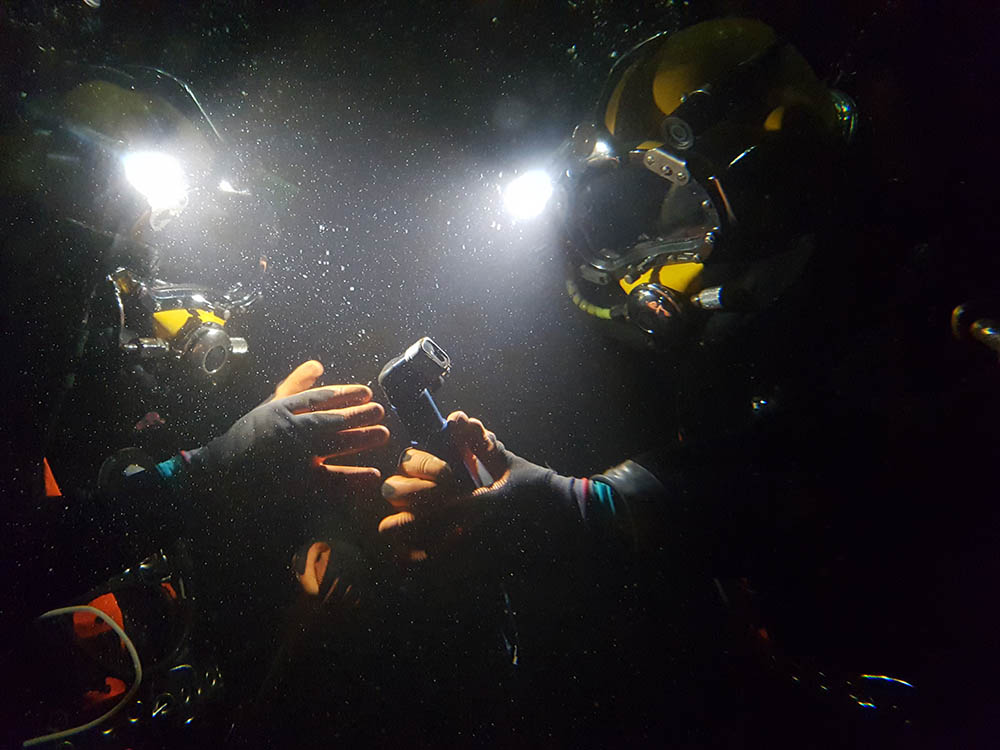
Average Underwater Welding Salary in Canada (Canadian Dollars)
Underwater welders in Canada receive higher salaries than in other occupations worldwide. The salary is $100,862 per year. Besides the salary, underwater welders also receive an average bonus of $2,370 per year.
The starting salary for an entry-level underwater welder is $71,416 per year. Entry-level underwater welders have one to three years of experience. Experienced underwater welders can earn up to $124,875 per year.
In Canada, you must have more than eight years of experience to be considered experienced. Below is a further breakdown of underwater welding salaries in Canada.
Hourly Wages
Most underwater welders receive their salaries depending on the hours they have worked. The average underwater welding salary is $48.49 per hour.
Daily Earnings
The daily wages amount to $387.92.
Weekly Salaries
The average underwater welding salary is $1,939.60 per week. This can vary depending on factors such as experience, education, and performance in welding. We’ll look at these factors later on.
Monthly Salaries
The average monthly underwater welding salary is $7,758.40. This does not include bonuses or benefits yet.
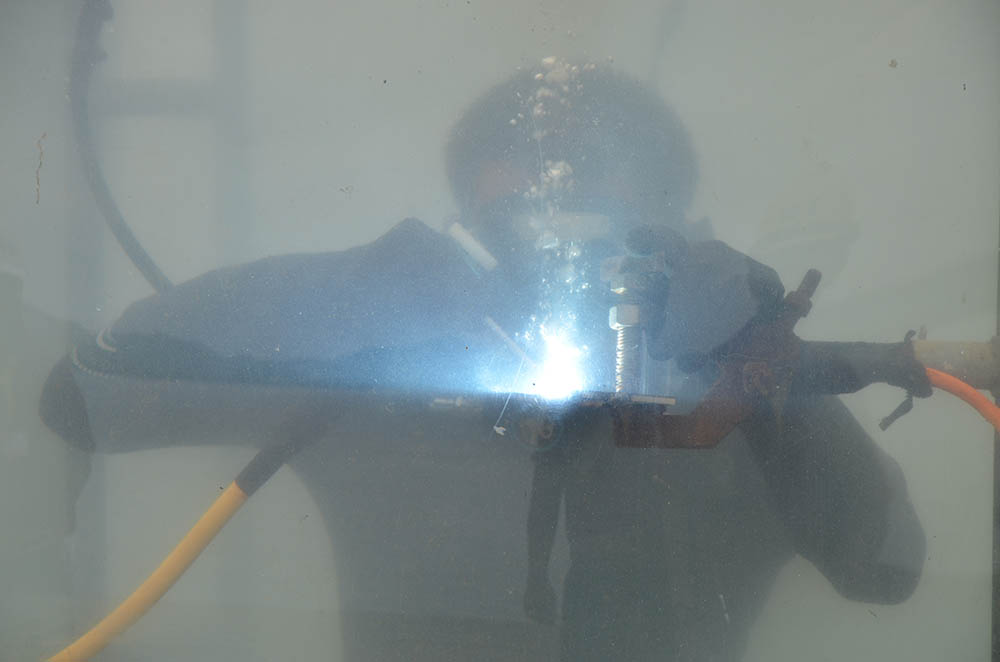
8 Highest-Paying Regions for Underwater Welders in Canada
Many Canadians working as underwater welders are employed in Canada’s oil fields. There has been an oil boom in the last few years. The demand for underwater welders is higher than it has ever been. As a result, the salary for underwater welding in Canada is rising fast.
Here are some of the highest-paying regions for underwater welders in Canada.
| Highest-Paying Region | Average Salary (Per Year) | Average Salary (Per Hour) |
| Nunavut | $109,381 | $52.59 |
| Alberta | $105,500 | $50.72 |
| Saskatchewan | $99,053 | $47.62 |
| Quebec | $97,182 | $46.72 |
| Newfoundland and Labrador | $92,924 | $44.68 |
| New Brunswick | $92,837 | $44.63 |
| Manitoba | $92,017 | $44.24 |
| Nova Scotia | $91,306 | $43.90 |
Factors Affecting the Salary of an Underwater Welder in Canada
When you get into a career, the pay is one of the things that you’ll keep in mind. It’s always good to know your worth and how it affects your salary.
Many factors affect the average salary of an underwater welder, as seen below:
Diving Experience
The experience level of an underwater welder in diving plays a massive role when it comes to their salaries. Those with more experience earn more money than the less experienced.
Divers who have been doing underwater welding for a long time have more skills and knowledge. It allows them to perform tasks faster and efficiently.
Education Level
The more education you have, the more likely you will be offered a higher-paying job. It may have better benefits and opportunities for advancement. A high school diploma is required for most entry-level jobs.
You can also complete an underwater welding program, which takes between six months and two years. An underwater welder with a bachelor’s or master’s degree receives a high salary.
Some positions may need at least a one-year apprenticeship program. Then, companies may hire you as an entry-level employee.
Welding Performance
The quality of work you perform affects your ability to get hired by welding companies. So, it impacts your salary greatly.
If you can do high-quality welding work, it will be easier to find jobs. Also, you’ll be paid more than someone who cannot produce quality work consistently.
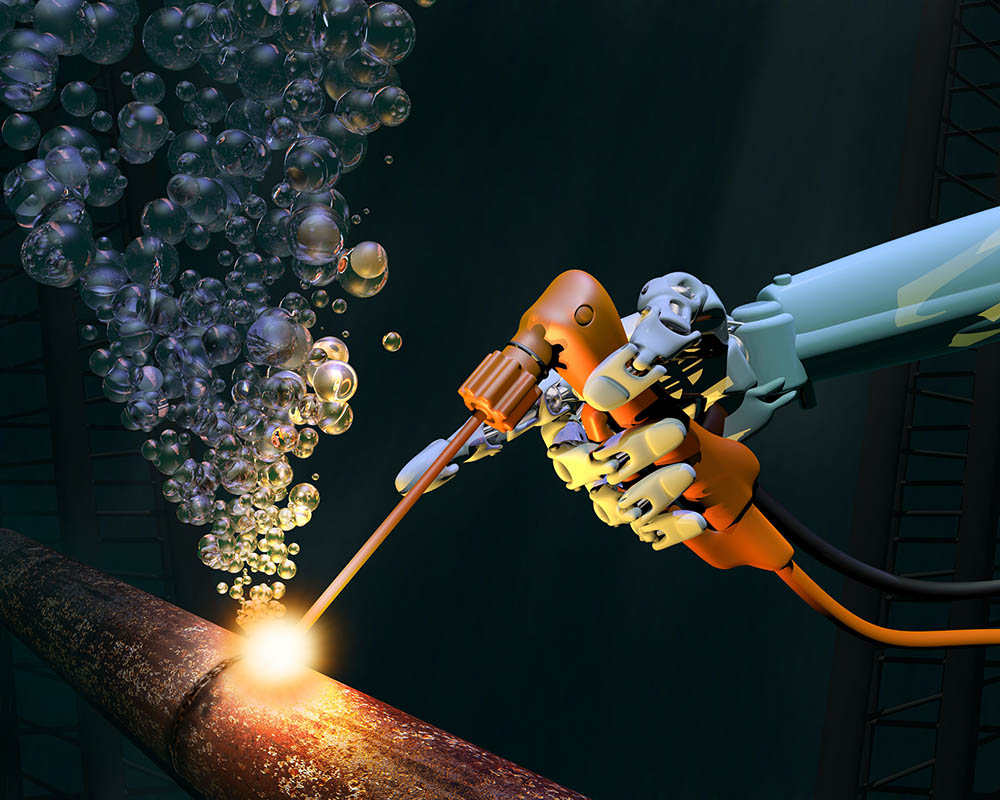
Skills Needed for Underwater Welding
Several skills can increase an underwater welder’s earning potential. Here they are!
Safety and Attention to Detail
Safety is a top priority for all underwater welders. Proper safety measures ensure that workers are protected from injury while working. Also, it ensures that their work does not cause damage to surrounding areas or equipment.
Underwater welders should have excellent attention to detail. This way, they’ll avoid mistakes that could injure them or other welders nearby.
Problem-Solving Skills
Underwater welders must solve problems fast. It ensures the safety of their fellow workers and themselves. A problem-solving mindset will allow you to think outside the box when you face challenges at work.
Math Skills
One crucial skill for underwater welders is math. The profession involves a lot of calculations that must be done within a short period. For example, you may be doing repairs on ships or oil rigs. You must calculate how much welding material you need. Also, you must calculate how much time it will take before you start working on the surface again.
Analytical Thinking and Creativity
An underwater welder must think analytically to find solutions to problems that arise during work. This skill also helps them learn new techniques and processes fast.
Creativity is another crucial skill that allows one to come up with innovative ways of completing tasks.
Usually, underwater welders work on many tasks. They repair oil rigs or construct new ones. Creativity will allow them to improve their work or find new uses for it.
Endurance and Physical Strength
Underwater welders must be physically fit and enduring because they work in a harsh environment. They may need to lift heavy objects and perform strenuous tasks for long periods. So, make sure you have excellent physical strength when applying for this job.
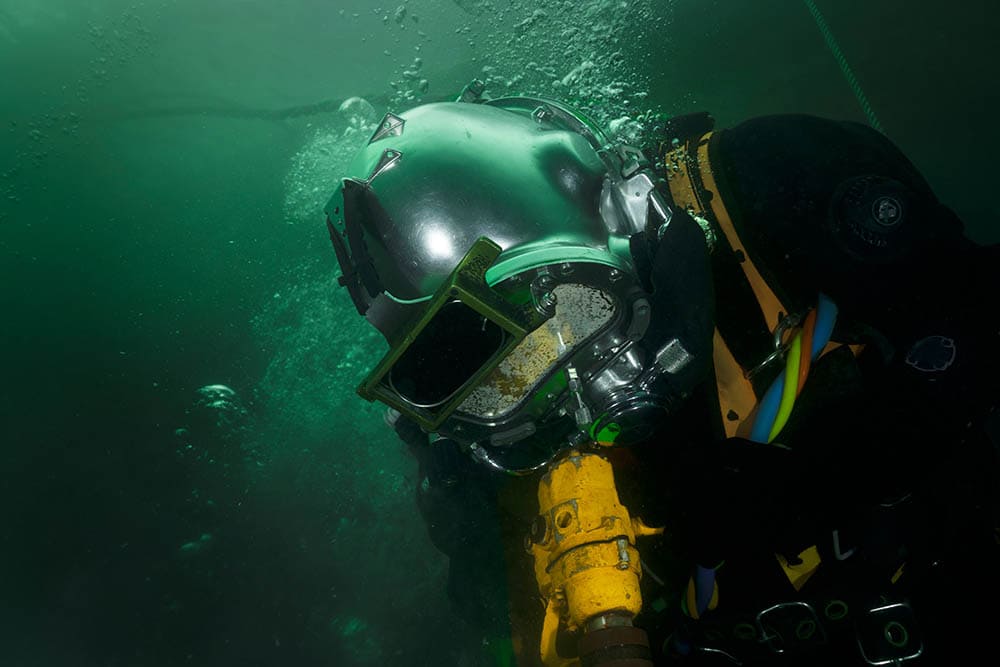
How to Advance and Earn More
Further Your Education
The first step in advancing your career as an underwater welder is to further your education. You can start with a high school diploma or GED, then enroll in a welding program that focuses on underwater welding.
The best place to study an underwater welding program is in a local community college. You can also learn in a vocational school. This training gives you all the skills you need to become a certified diver and perform the duties expected of you.
Learn More About Commercial Diving
Commercial diving is related to underwater welding. It has many similarities with welding, but it also has its set of skills and techniques. This skill is essential whether you’re working from oil rigs, underwater repair work, or even search-and-rescue operations.
Networking
Also, interact with commercial divers and underwater welders. It can be beneficial if you want extra opportunities for advancement within the industry. You can do this by attending trade shows. These trade shows provide opportunities to meet other professionals in the industry. You can network and learn about new products and new welding techniques used by fellow underwater welders globally.
Final Thoughts
In any working field, it’s crucial to earn more than enough to cater to all your expenses. That’s even true for underwater welders. You don’t want to take welding jobs just to get by. So, you need to know that you’ll be making a comfortable living. Then, go through all the training and certification programs needed for this line of work.
We hope we have helped you gain some insight into this career path. Underwater welding is not only fun but lucrative based on the facts. If you enjoy traveling and want a decent salary, this career can be an excellent fit for you.
